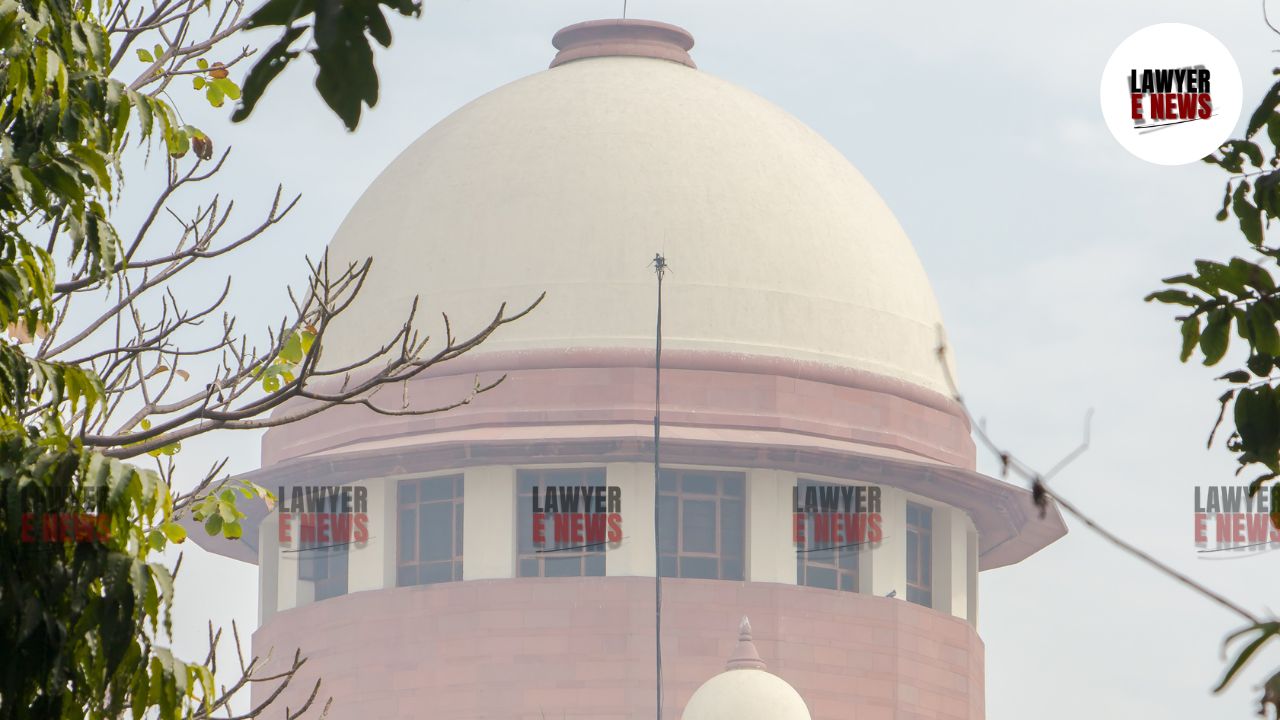-
by Admin
15 February 2026 5:35 AM



Supreme Court of India overturned the conviction of a death row inmate, citing grave procedural lapses and a failure to ensure fair trial rights. Supreme Court highlighted significant deficiencies in legal aid and trial procedure that rendered the conviction unsustainable, ultimately acquitting the appellant.
In a tragic case, a 10-year-old girl was allegedly raped and murdered in Uttar Pradesh on May 27, 2009, while grazing goats near a tubewell cabin. Ashok, the tubewell operator, was accused of the crime based on the testimony of a 7-year-old eyewitness (PW-2), who claimed to have seen the victim being taken into the cabin. The victim’s body was later found hidden under a haystack.
The Trial Court convicted Ashok of rape (Section 376 IPC), murder (Section 302 IPC), and destruction of evidence (Section 201 IPC), and sentenced him to death, adding charges under Section 3(2)(v) of the SC/ST Act. The High Court, while upholding the conviction, reduced the sentence to life imprisonment. Ashok appealed to the Supreme Court, challenging the reliability of evidence and procedural fairness.
The Court found that the appellant was left without legal representation during critical stages of the trial, including the recording of key testimonies and the framing of charges. Legal aid, when provided, was inadequate, with assigned lawyers frequently absent or unprepared.
"The right of the accused to defend himself in a criminal trial is guaranteed by Article 21 of the Constitution. Effective legal aid is fundamental to ensure a fair trial."
The Court noted a complete failure to follow the requirements of Section 313 of the CrPC, which mandates that all incriminating evidence be put to the accused for explanation. The omission prejudiced the appellant's right to defense.
"Material circumstances appearing in evidence against the accused must be put to him. Failure to do so amounts to a serious irregularity that can vitiate the trial."
Eyewitness Testimony: The testimony of PW-2, the only eyewitness, was inconsistent and recorded 21 days after the incident, raising doubts about its reliability.
Recovery Evidence: The alleged recovery of the victim's belongings at Ashok's instance lacked corroboration, as the prosecution failed to examine independent witnesses and did not document critical details.
The Court criticized the public prosecutor for failing to ensure that the trial adhered to procedural safeguards, including assisting the court in framing proper questions under Section 313 CrPC.
The bench, comprising Justices Abhay S. Oka, Ahsanuddin Amanullah, and Augustine George Masih, emphasized the necessity of fair trials and the role of effective legal aid in protecting constitutional rights. The Court issued comprehensive guidelines to improve the quality of legal representation and ensure fair trials:
Legal aid advocates in cases involving life or death sentences must have a minimum of 10 years' experience in criminal law.
State Legal Services Authorities must provide training to legal aid advocates, combining classroom instruction with practical experience under senior lawyers.
Public Prosecutor's Responsibility
Public prosecutors must assist courts in ensuring all procedural safeguards are followed, especially during the recording of evidence and Section 313 CrPC examinations.
Legal Services Authorities must regularly monitor the performance of legal aid advocates and ensure their consistent attendance.
Legal aid must not be treated as a mere formality. Advocates must be competent and prepared.
Trial courts must ensure that unrepresented accused are informed of their right to legal aid at every stage.
It is imperative to provide sufficient time for legal aid lawyers to prepare before proceeding with trials.
The Court acquitted Ashok, citing an irreparable violation of his constitutional rights due to a lack of effective legal aid and procedural irregularities. It also condemned the lower courts for their oversight, particularly the trial court, which imposed the death penalty without ensuring compliance with basic legal safeguards.
"Imposing capital punishment in a case that ought to have resulted in acquittal shocks the conscience of this Court."
This judgment underscores the importance of fair trial rights, particularly for marginalized individuals who depend on legal aid. It reaffirms the judiciary’s role in upholding procedural fairness and highlights systemic reforms needed to make legal aid truly effective.
Date of Decision: December 2, 2024
